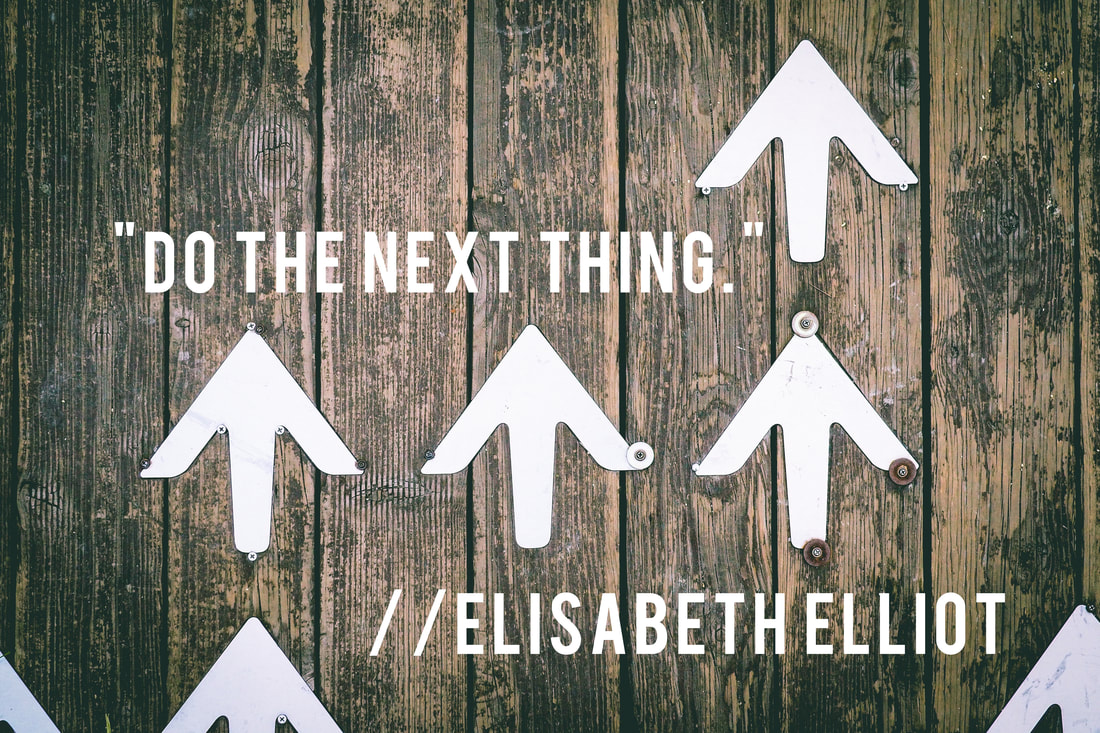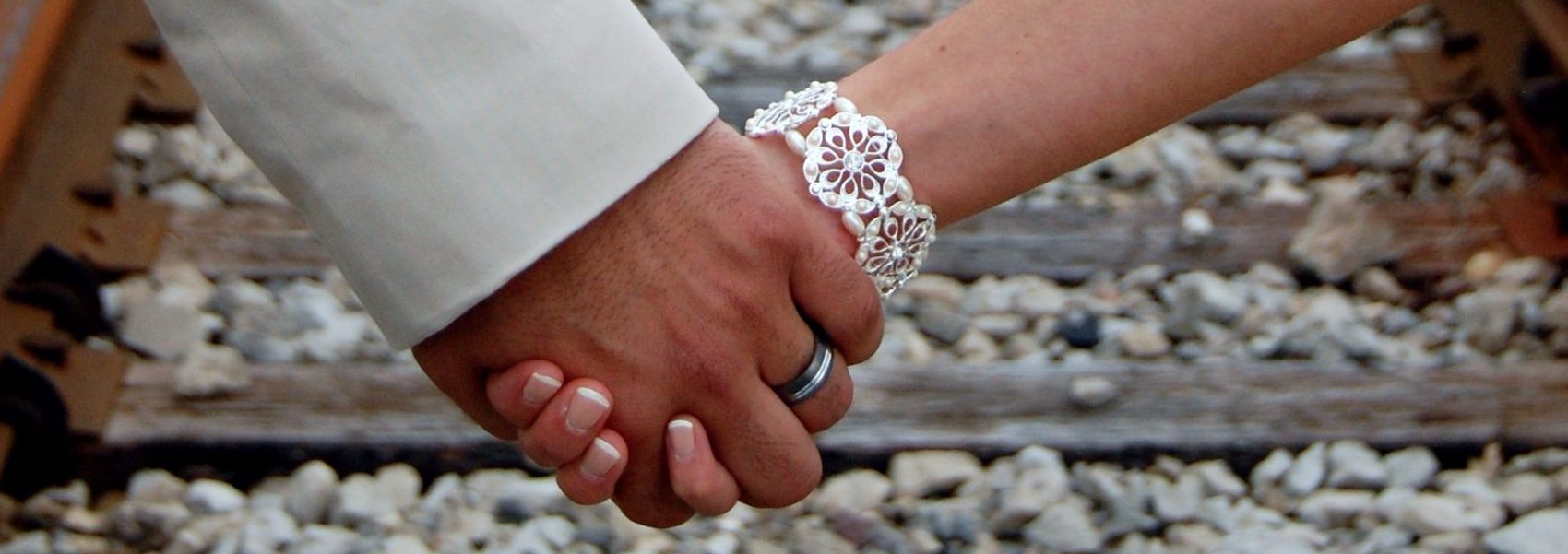September 16, 2020
People say our marriage is impossible. They are right.
But they are wrong if they don’t think their marriages are impossible, too.
God allows our impossible-without-Christ human marriages to be that way so that they mirror the impossible-without-Jesus Christ Marriage between Christ and the Church.
Ephesians speaks to this mysterious reality. “’A man leaves his father and mother and is joined to his wife, and the two are united into one.’ This is a great mystery, but it is an illustration of the way Christ and the church are one” (Eph 5:31-32).
People make jokes all the time about how eye-rollingly different men and women are from each other. “Hormones trick us into marriage, but surprise! We’re in a covenant, and Christians don’t get divorced. So, jokes on us!”
But is marriage to someone often so different from us a gigantic, cosmic joke? Or is it cosmic design?
How different is God from humanity? Ontologically different. “[H]e is far above any ruler or authority or power or leader or anything else—not only in this world but also in the world to come,” and yet God wants to marry us (Eph. 1:21, Rev. 19:6-9).
“God is infinitely other, infinitely different from his creation. And yet this infinitely different Creator does not hold himself aloof,” Christopher West writes. “God wants to be one with his creation. God wants to unite with his creation. God wants to marry his creation.”
Marriage between very different man and woman is impossible without Christ (Jn. 15:5). Marriage between outrageously different God and humanity is impossible without Christ (Heb. 10:12-14). Human marriage is a mysterious metaphor.
Why do people say that our marriage is uniquely impossible? Oh yeah, because I am attracted to women.
When I almost left my husband for another woman, I was starting to believe what the world preached: Our marriage was doomed because the attraction toward my husband had died.
When we were first married, I often truthfully said, “I am not attracted to men, but I am attracted to Matt.” When the Matt-attraction faded seven years later, however, I believed my lack of desire for him and continued attractions toward women offered me a get-out-of-marriage-free card. You’re free, it stated. You can be like other liberated lesbians who are best friends with their husbands, but they find a true, life partner.
Was that get-out-of-marriage-free card valid? Biblically?
The world says, “Follow your heart, your feelings, your attractions—they lead to the truest truth.” But what does the Bible say?
I wish I could say I started with Scripture to answer this question. Instead, I began by asking my straight friends questions about attraction, and by God’s grace, their annoying-but-helpful responses eventually led me to a biblical answer.
“Are you attracted to your spouse?” I asked them. “All the time?” “How is sex for you?”
Their answers were annoying because I found if they were married more than two minutes that all of them weren’t automatically attracted to their partner.
I wasn’t the enigma I thought I was.
This reality was obnoxious but simultaneously helpful because as much as I wanted to be the marital exception in order to claim the get-out-of-marriage free card, deep down, it was nice to know I wasn’t so alone. I wasn’t a freak. We weren’t so different. Maybe we aren’t in such an impossible marriage.
“I never want to have sex with him,” straight wives said. “I am not attracted to her physically at all,” heterosexual husbands offered. “I only have sex with him so he will talk emotionally with me,” women admitted.
So … everyone has issues with attraction. Huh. So, if heterosexual, Christian couples do not automatically see their lack of attraction as a liberation card from their marriage, why did I see it as one from mine?
Was there a different set of marriage rules for me?
Did the Bible say anything about attraction being the key ingredient for divorce? I can find biblical reasons for divorcing because of adultery, abuse, and a few others, but not a lack of attraction (Matt. 19:9, 1 Cor. 7). Why not?
Because marriage isn’t about attraction. Marriage is a gospel metaphor.
When we look at marriages and see two very different people—male and female—laying down their lives for each other, pursuing oneness with the other in mind, body, and spirit (even when they are not automatically attracted to them), we catch a glimmer of the gospel.
Married people show us a living, breathing picture of the call on each of us to lay down our life for our ontologically-different-from-us husband, Jesus, to be one with Him in mind, heart, soul, and strength—even when we are not automatically attracted to Him.
No. There was not a different set of rules for me.
Now, I wish I could say that stumbling into the truth of this gospel metaphor automatically fixed the chasm that had grown between my husband and I, but it didn’t. We had so much more work to do.
This work was not an attempt to make me straight; this work was and is daily seeking to increase oneness with each other in the small and significant ways we can.
This daily oneness-seeking sounds a lot like the straightest couples I know. It should sound a lot like the straightest couples I know.
Because all of us married people—if we are doing this thing right—are not trying to be like some imaginary perfect, super-straight human couple, but through the power of the Holy Spirit, are seeking to emulate the Church’s current and future marriage to Jesus Christ.
Marriage is a metaphor. All impossible marriages are gospel metaphors. All of them.
But not everyone in our specific marital situation has our story. Not everyone in what is called a “mixed-orientation marriage” finds the hope we found. My husband and I cry with them. We walk with them if we can. We simply get it. The amount of times we sat silent and alone at our kitchen table overwhelmed with hopelessness is more than we can count.
But I do wonder how much more hope impossible marriages like ours could have if they weren’t sitting at their tables silent and alone.
If the many people in mixed-orientation marriages who reach out to my husband and I every day didn’t feel like they were “extra impossibly married,” how much more hope could they have? How many of their marriages could continue to live out the gospel metaphor if when they shared their version of impossible marriages their words weren’t met with wide eyes, or quick “I’ll pray for yous,” or were given their “get-out-of-marriage free” cards?
We need to understand that marriages—all marriages—are living, breathing, pictures of the gospel.
I almost missed it. Let’s not miss it. The gospel message our marriages preach is too important.

- Read: Does this message speak to you? Grab our book to hear more–from my husband and my perspective. <3
- Respond: If you are married, what is your version of an impossible marriage? How do you preach the gospel through it?
- Respond: As a single person, how do you show us what eternity looks like through your singleness? Put another way: In your love relationship to Jesus and communion with the Church, how do you actively seek to show the world a glimpse of heaven (where there will be no marriage but The Marriage) while living here on earth?




So well said. I love the message. I love that you listened to Christ and allowed him to step into your impossible. Thank you for sharing.
Thank you, friend.
Hi Laurie.Your message found me at a time where I am conflicted between leaving my husband for admitting to me that he is bi and staying with him because of this gospel picture that the Lord is holding up in front of me. The last week of this revelation has been a spiritual emotional mental limbo for both of us. I do not want to end this marriage because I do know I have a good man who is my person and I am his. However the fear of the unknown has crippled my vision and my movement. I am seeking God on this one as he is struggling with his spirituality as well as his sexuality. Any encouragement or advice you can offer would be amazing. And I have purchased your book. God bless you for your message. God bless your marriage God bless you for this example.
Hi, friend. Thanks for reaching out. I am praying for you right. Start with our book…and/or you are welcome to email me to continue the conversation. info@lauriekrieg.com
Blessings!
We were ‘good Christians’; both virgins when we married. After 30 years of a childless marriage, my wife finally ‘came out’ to herself and me as a lesbian, and a low sex marriage became a no sex one.
The deeply discouraging element is the certainty that there is no hope at all, no hope of any change in the reality of our situation. No chance at all of my ever experiencing sex and desire with another person. I’ve just finished reading Philip Yancy’s ‘Disappointment with God: three questions that no one asks aloud’. ‘Is God unfair?’ ‘Is God silent?’ ‘Is God hidden?’ A lot of dear old Job in the book. And a feeling of disappointment at the end: we’re invited to hold to the faith that all will come clear in the end, in the hereafter. Certainly I can see absolutely no hope of change here and now, or in the years to come. And my prayers have long been not so much for change in our circumstances (seemingly impossible), but change in me, in how I feel and how I accept peacefully the reality of this unchanging situation. Surely God’s capable of that? If not, then what’s the point of prayer, what’s the point of God?
For both of us, our sexuality has been an unreserved and undeserved curse and not a blessing. A source of misery, tension, frustration and division, not union and unity.
I hear you…and oh, we hear you. There were months and maybe even years where we could have written something similar. I am so praying for you right now. Feel free to email and reach out if you want to talk more. Blessings.
Hi Laurie!
I just finished reading your book and wanted to say “thank you” for sharing your story!
A year ago I went “eyes-open” in a mixed orientation relationship. The man I fell in love with was open about his conflicted sexuality and I still felt encouraged by God to pursue a relationship with him. Both of us have not had any relationship experience before this one, and little did we know what to expect (especially considering our special circumstances).
We did not know where it would lead us and if there actually was a way forward for us.
There are not many encouraging views on couples like us and to my knowledge there is little support for the straight person in MORs – even less for those knowingly entering one.
When we started dating we did not know, what kind of intimacy would be possible. We still don´t, although we have grown closer.
I am deeply grateful not only for your thoughts, but especially for Matt´s perspective on things. I love that the two of you opened my eyes to glorifying God through Oneness in a relationship. Not that I hadn´t heard that before, but my focus got shifted to sexuality being the key to our relationship working or failing. Like Matt said, it has become kind of an idol.
I don´t know what the future will bring for us. But I hope that you and your husband´s example of letting go of expectations and instead pursuing to love your spouse like God loves us will stick with me and help me on my path with my partner. In our impossible relationship I want to glorify the one to whom all things are possible.
PS: If you have any helpful info or contacts to people in a similar situation to mine I would deeply appreciate that.
Thanks so much for sharing! You are right…there are so few hopeful stories like ours. Do you follow Jackie Hill Perry? Rachel Gilson? Brenna Blain? Rebecca McLaughlin? Nate Collins? They all walk a similar path as we do!
Praying for you now.
Laurie (and Matt) – I have not read your book, but my wife and I have enjoyed several episodes of your podcast, and I find myself in [grudging] agreement with your identity-as-idolatry point of view. I feel the pull of my own headspace – that excessive rumination about who I am and could become. So I don’t want to fall into that trap, but yet…
I have recently found the… I hesitate to call it “strength” as I don’t want to put too much positive spin on it; maybe “wherewithal”… as a 44-year-old man – to admit my bisexual attraction and inner sense of other-than-masculine identity to myself and my wife. I was so deeply conflicted and secretive about this for most of my life that I had constructed multiple personalities to escape into and explore my non-binary identity and bi- attraction… Drug addiction… Intensive outpatient and 12-step recovery… Antipsychotics… Ongoing therapy – both individual and couples. Oh my!
My wife and I are very committed to our marriage. We are both believers, and though I wrestle with doubts they do not impact my committed and regular practice of Bible study and prayer. We have six adopted kids, a strong faith community, and a great relationship with each other. In other words: solid, solid foundations.
Your story encourages us. But the future can feel so murky, so unknowable.
I am a pastor at a small rural church with an aging congregation. I also do Chaplaincy at local hospitals and nursing homes. I found your site and thought your situation is far out of my context, experience, and comfort zone. However, that is not the case. My wife and I have been married 30 years and in that time we had to face double-digit years of her suffering post-partum depression, my onset of depression, and chronic migraine for 6 years. We, by the grace of God, have made it through but the sexual, emotional, and spiritual oneness was certainly not there during that time. I can, at some level, relate to the loss of hope, discouragement and wanting to get out of marriage. We are on the other side now and have a, according to my 20-something daughter, a “relationship-goals” marriage.
I say all of this, to agree with you that there are very dark times, but there is hope. Christ has to be at the center of this impossible thing we call marriage.
Thank you for helping me see this, for understanding better your situation, and for challenging me as a pastor to preach with courage on sexuality. Most of all, thank you for the insight you have given me for when I walk with those who feel their impossible marriage is at an end. A true blessing.
Thanks for this encouragement, Pastor Jason! We appreciate your reading and kindness!